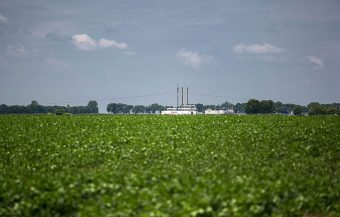
According to the official data posted on the website of the European Parliament, 2.2 billion tonnes of waste are generated in the European Union each year. More than a quarter of it includes municipal waste: everyday waste that is collected and treated by municipalities, mainly produced by households. To reduce waste and its impact on the environment, the EU has adopted ambitious targets leading to a more sustainable model known as the circular economy.
What does the circular economy entail
In practice, this implies reducing waste to a minimum. When a product reaches the end of its useful life, thanks to recycling, the resources it contains are reused, thus creating added value. Reusing and recycling products is important to slow down the consumption of natural resources, reduce environmental damage, and preserve biodiversity. Creating more sustainable products reduces energy and resource consumption and thereby the total annual greenhouse gas emissions, increases competitiveness, encourages innovation and creates new jobs.
Economically and environmentally sustainable development model
In addition, switching to reusable products reduces the amount of waste. Packaging is an increasing problem; the average European person produces almost 180 kilogrammes of packaging waste annually. The circular economy is not a new topic in Serbia either. The contribution to this concept is best illustrated by the example of our largest oil company – NIS. Namely, NIS explains that the company, as a packaging filler and supplier that places packaging on the market, hired an operator responsible for the packaging waste management system that holds a license for performing this activity. All packaging waste that was picked up and collected in 2022 was re-used, recycled, or disposed of during the current year, in order to meet the national objectives set for 2022.
Thus, in 2022, 111 t of paper, 18 t of PET packaging, and 10 kg of cans were handed over for recycling in NIS, which saved 1,887 trees, 36,090 litres of fuel, 3,552,000 litres of water, and 574,340 kWh.
Another of the goals that the company strives for is the constant reduction of the share of freshwater in the total amount of water used in business processes. At the Pančevo Oil Refinery, for example, thanks to the recovery of condensate, water is re-circulated, which achieves the effect of reducing the intake of fresh water by about 20 percent.
An important fact is that, just during 2022, NIS contributed to a healthier environment in Serbia by investing in environmental projects in the amount of almost RSD 315 million. All relevant data on this topic were presented within the 13th verified Sustainable Development Report, published by NIS under the symbolic slogan “Our Sustainable Community”.
In focus:
- NEW INVESTMENTS IN RENEWABLE ENERGY SOURCES ARE A SURE WAY TO THE ENERGY TRANSITION
- MORE ELECTRICITY FROM RENEWABLE SOURCES IN MONTENEGRO
- CHANGES IN THE RES SEGMENT LEAD TO A STABLE POWER SYSTEM
Operating according to global standards
NIS is the industry leader in the field of sustainable production and recycling, and it introduces good practices in its business. At eight oil and gas fields in Serbia, the company has built small power plants, in which electricity and thermal energy are now produced from gas that was previously burned on a flare, and thereby, the emission of harmful gases is reduced. Through the cogeneration program, the thermal energy produced is used for the needs of the NIS facilities, while electricity surpluses are sold on the domestic market.
This oil company also applies a modern environmental method of drilling in oil fields by applying the principle of “dry locations”, which is also used by the world’s leading oil and service companies. The material obtained during drilling is recycled on the site by separating it into a part that is re-used for drilling and a part that is waste and that is disposed to a landfill where it is stored according to global standards.
In addition, NIS also built the Amine Plant for the natural gas purification near Elemir. The processing method in this plant completely prevents carbon dioxide emissions into the atmosphere, thus reducing the “greenhouse” effect. The extracted CO2 is then injected into the Rusanda oil and gas field, to increase oil utilization, which is another contribution of this company to the circular business model.
Source: NIS



